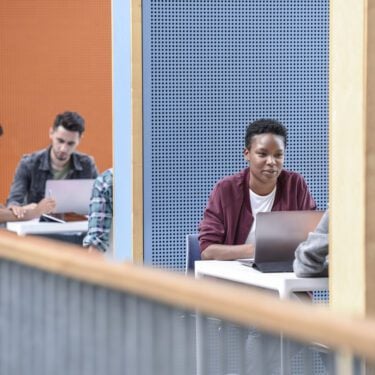
21/01/19
2 min read
The Nuffield Foundation has awarded funding to Mathematics in Education and Industry (MEI) to investigate the feasibility of a new mathematics curriculum for post 16 GCSE resit students.
The aim of this new project is to start a fresh consideration of appropriate mathematical content and qualifications for post 16 GCSE resit students, in line with the recommendations of the Smith review. It is hoped this will improve outcomes for young people, and the wider population, by improving knowledge of, and attitudes towards, mathematics.
In England, young people aged 16-18 who have not achieved grade 4 or higher in GCSE Mathematics are required to continue to work towards achieving it. Those studying full-time who achieved grade 3 are required to resit it, which often results in young people lacking confidence in mathematics and the prospect of ‘more of the same’ can be very de-motivating. The resit success rate is also very low. Over 170,000 young people resat GCSE Mathematics in the summer of 2018, but only 23.7% achieved at least a grade 4 or equivalent. As a result, many young people do not achieve their full potential and can be left with a lasting sense of failure and a reinforced negative attitude towards mathematics. This may prevent them from engaging with learning and using mathematics in the future.
The standard GCSE Mathematics curriculum, which is designed for 14-16 year olds, attempts to do two things: prepare students for further academic study of mathematics, and develop the knowledge and skills to apply mathematics to practical problems encountered in the workplace and other aspects of life. Most resit students need to focus on the latter.
The project will report towards the end of 2019.
Josh Hillman, Director of Education at the Nuffield Foundation, said:
“Performance in GCSE maths has both immediate and long-term impact on the education, training and employment trajectories of 16 year olds. Previous Nuffield Foundation funded research has found that students’ past experiences mean they lack both motivation and confidence when required to retake their maths GCSE, and the resit success rate remains stubbornly low. This feasibility study responds to the Smith Review recommendation that current maths qualifications could and should be reformed to increase the proportion of 18-year-olds with a good understanding of maths. We are pleased to support this new study which aims to develop much needed curriculum options in post-16 maths.”
Charlie Stripp, Chief Executive of MEI, said:
“Re-sitting a GCSE Mathematics qualification designed for 16 year olds does not meet the mathematical needs of the large majority of students who do not succeed in maths at age 16. These students need a different post-16 GCSE maths curriculum that can motivate them to develop fluency and confidence in the fundamental maths skills they need for everyday life and employment. MEI is delighted that the Nuffield Foundation has agreed to support our work to try to develop such a curriculum.”


















































